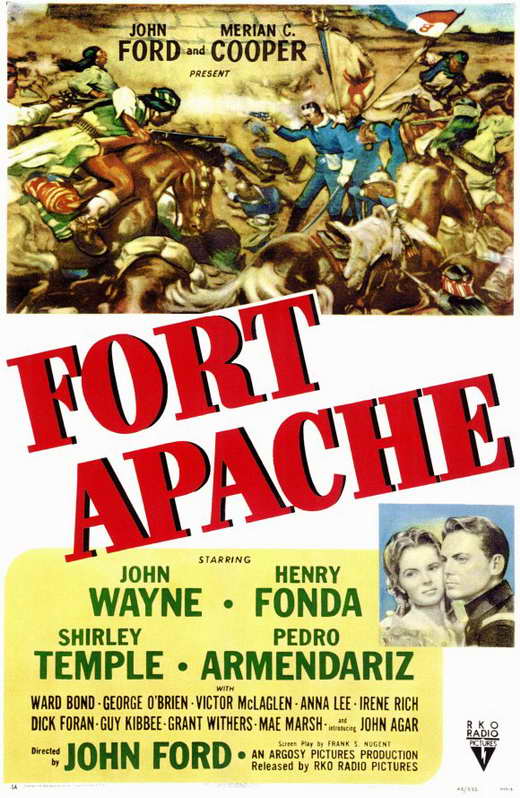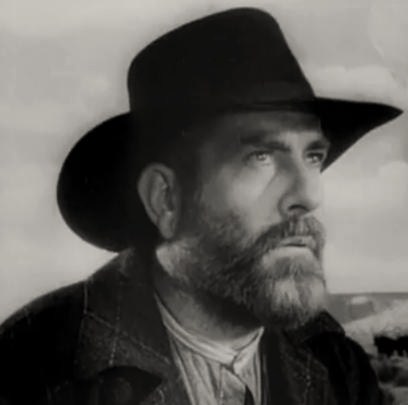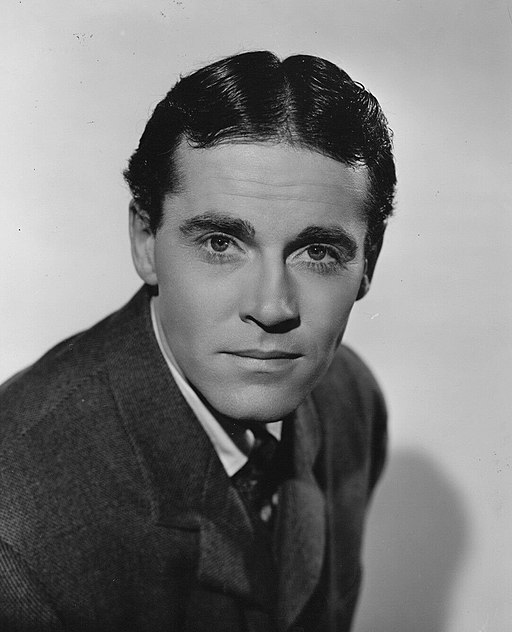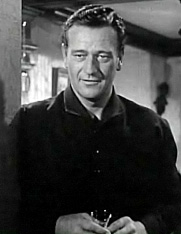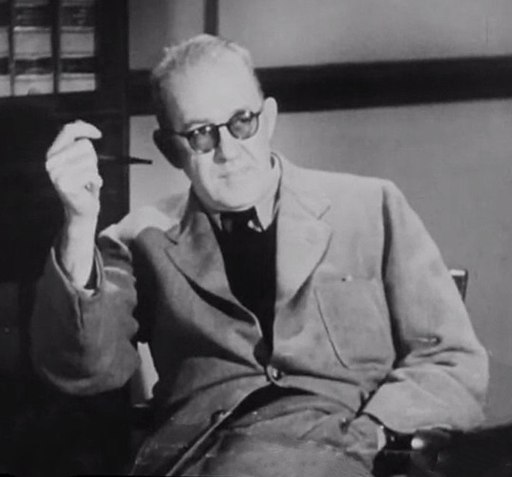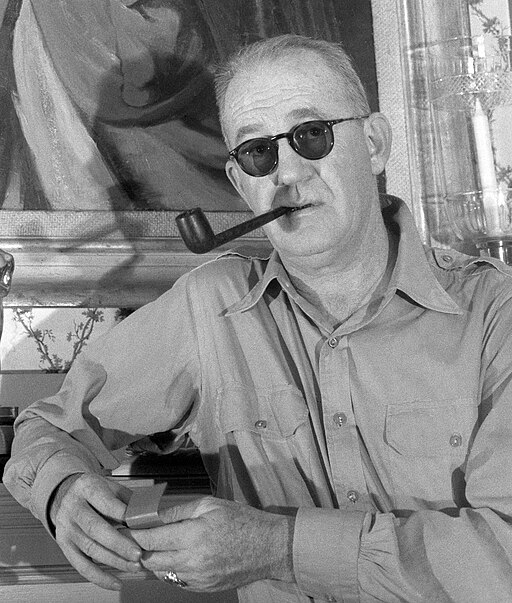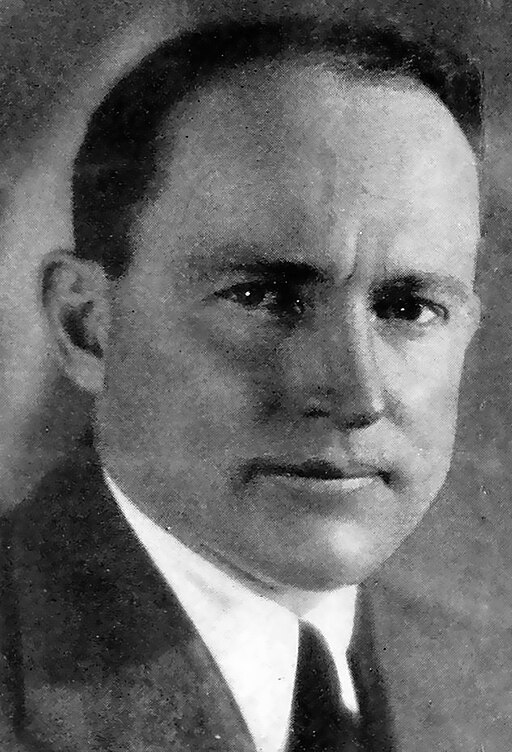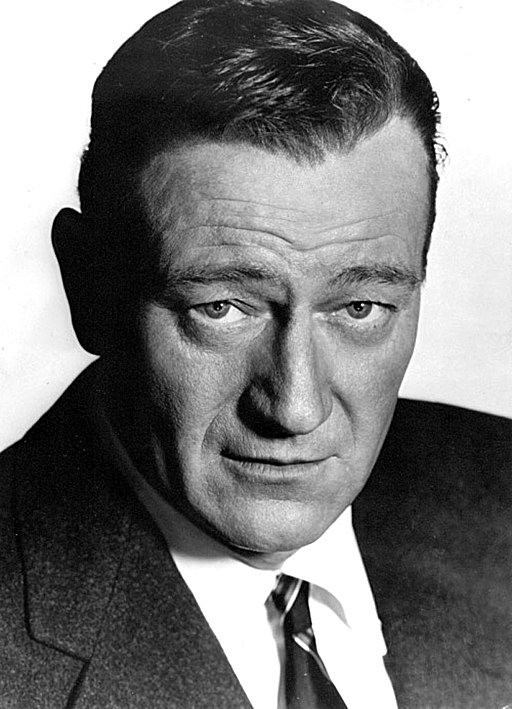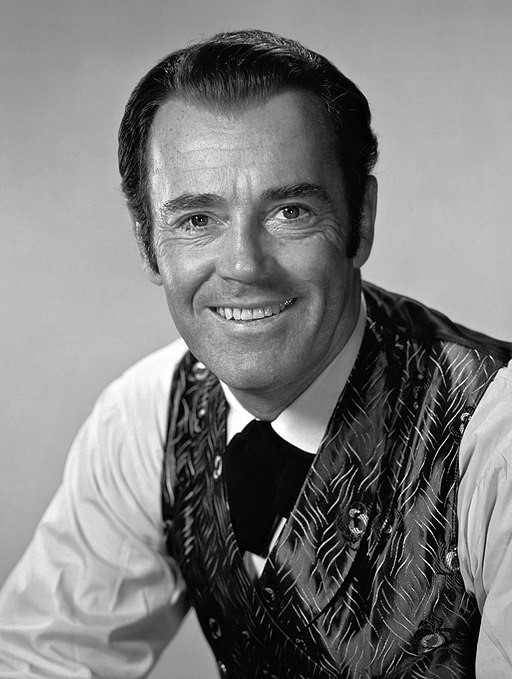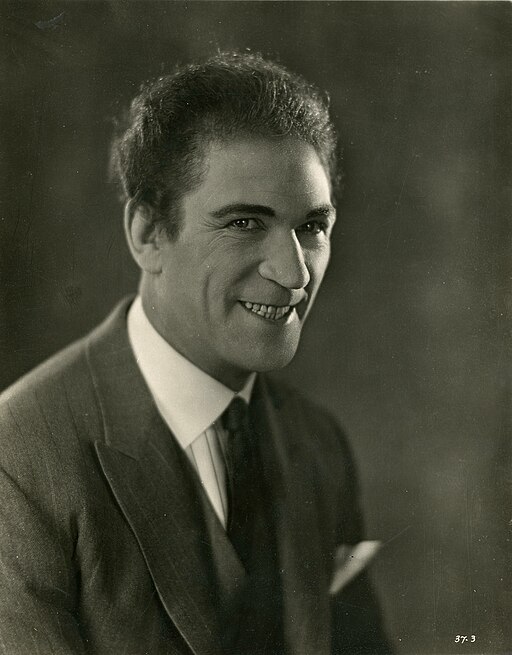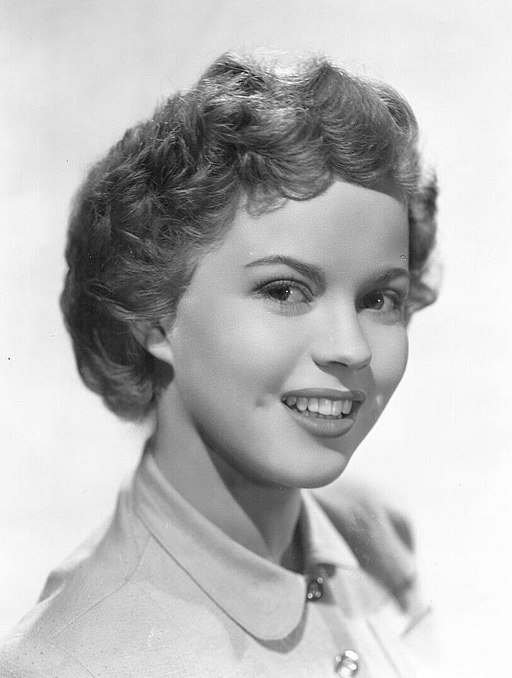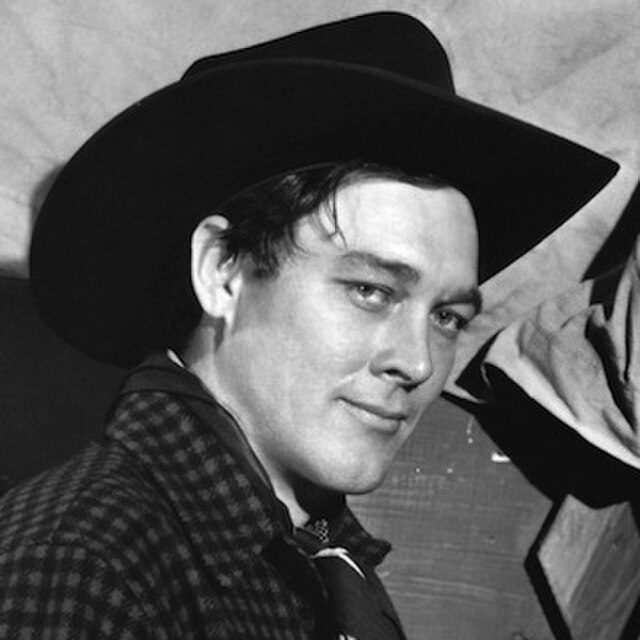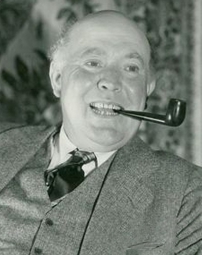Fort Apache - 1948
back| Released by | RKO Radio Pictures |
| Director | John Ford |
| Producer | Merian C. Cooper |
| Script | Frank S. Nugent, based on the short story |
| Cinematography | Archie Stout, ASC and William H. Clothier |
| Music by | Richard Hageman |
| Running time | 128 minutes |
| Film budget | $ 2,1 million |
| Box office sales | $ 10,2 million global box office sales |
| Main cast | Henry Fonda - John Wayne - Shirley Temple - Pedro Armendariz - Ward Bond - Victor McLaglen - Anna Lee |
Fort Apache
A nuanced Western exploring the cultural misunderstandings on the American frontier
"Fort Apache" is one of the first films in John Ford's "Cavalry Trilogy" and is noted for its complex portrayal of Native American and U.S. Army relations, as well as its critical examination of U.S. military leadership.
The film has been praised for its cinematography, performances, and its nuanced approach to Western genre conventions.
Related
Fort Apache – 1948
Summary of "Fort Apache"
Setting: The film is set in the post-Civil War American Southwest, at the remote Fort Apache cavalry post.
Plot Overview:
- Introduction of Characters: The story begins with the arrival of Lieutenant Colonel Owen Thursday (Henry Fonda) and his daughter Philadelphia (Shirley Temple) at Fort Apache. Thursday, an arrogant and rigid leader, is assigned to command the post, replacing the more lenient and understanding Captain Kirby York (John Wayne).
- Tensions with Apache Tribes: Thursday's stern leadership style quickly leads to tension, both within the fort and with the local Apache tribes, led by Cochise. Contrary to York's advice, Thursday dismisses the complexity of the native situation, viewing the Apache as mere savages to be subdued.
- Internal Conflicts: The narrative also explores personal conflicts and relationships within the fort, including a budding romance between Philadelphia and Second Lieutenant Michael O'Rourke (John Agar), the son of a veteran sergeant.
- Climactic Battle: Thursday's misunderstanding of the Apache situation culminates in a disastrous military engagement. Despite York's warnings, Thursday underestimates the Apache and leads his troops into an ambush, resulting in a massacre of the cavalrymen.
- Resolution: In the aftermath, York is promoted to command the fort. He chooses to honor Thursday's memory by falsely portraying him as a heroic figure who gallantly fought against overwhelming odds, thus perpetuating the myth of the noble military sacrifice.
Official Trailer "Fort Apache":
Analysis of "Fort Apache"
Themes and Motifs:
- Leadership and Arrogance: One of the central themes is the critique of arrogant and out-of-touch leadership, embodied in Colonel Thursday. His inability to respect and understand the Apache and his subordinates leads to tragedy.
- Cultural Misunderstanding: The film explores the complexities of cultural interactions and misunderstandings between the U.S. Army and Native Americans, particularly highlighting the nuances of Apache culture and leadership.
- Myth vs. Reality: "Fort Apache" delves into the creation of American myths, especially those surrounding the "Old West." The glorification of Thursday's last stand, despite its foolhardiness, reflects how history often romanticizes and distorts reality.
- Moral Ambiguity: Unlike many Westerns of its time, the film does not depict a clear-cut distinction between 'good' and 'bad.' Instead, it presents morally complex characters and situations.
Cinematic Techniques:
- Direction and Cinematography: Ford's direction, combined with the cinematography of Archie Stout and William H. Clothier, captures the vast, unforgiving landscape of the American Southwest, which becomes a character in its own right.
- Character Development: The film features deep characterizations, particularly in the portrayals by Fonda and Wayne, who embody contrasting military ideals.
Cultural Impact:
- "Fort Apache" is often cited as one of the first Westerns to offer a more balanced view of Native Americans.
- It challenged the typical glorification of American military conquest, offering a more critical perspective on U.S. history and policies.
- The film is a seminal work in John Ford's filmography and helped solidify the Western as a significant genre in American cinema.
In summary, "Fort Apache" is much more than a typical Western; it's a nuanced exploration of leadership, cultural conflict, and the myth-making aspects of American history.
Full Cast of Fort Apache:
- Henry Fonda as Lt. Col. Owen Thursday
- John Wayne as Capt. Kirby York
- Shirley Temple as Miss Philadelphia Thursday
- Pedro Armendáriz as Sgt. Beaufort
- Ward Bond as Sgt. Major Michael O'Rourke
- George O'Brien as Capt. Sam Collingwood
- Victor McLaglen as Sgt. Festus Mulcahy
- Anna Lee as Mrs. Emily Collingwood
- Irene Rich as Mrs. Mary O'Rourke
- Dick Foran as Sgt. Quincannon
- Guy Kibbee as Dr. Wilkens
- Grant Withers as Silas Meacham
- Jack Pennick as Sgt. Daniel Schattuck
- Ray Hyke as Lt. Gates
- Movita as Guadalupe (as Movita Castaneda)
- Miguel Inclán as Cochise
- Mary Gordon as Ma Claffey
- Philip Kieffer as Capt. Nicholson
- Hank Worden as Southern Recruit
- Mae Marsh as Mrs. Gates
- Frank Baker as Barfly
- Mickey Simpson as Cpl. Bell
- Fred Libby as Cpl. Elliott
- John Agar as 2nd Lt. Michael Shannon O'Rourke
- Harry Woods as Capt. Winters
- William Forrest as Col. Thursday's Adjutant
- Frank McGrath as Bugler
- Cliff Lyons as Sentry
- Tom Tyler as Cpl. Mike
- Chief John Big Tree as Apache Indian (uncredited)
- Rudy Bowman as Trooper (uncredited)
- Danny Borzage as Musician (uncredited)
- Chet Brandenburg as Barfly (uncredited)
- Paul Burns as Barfly (uncredited)
- Ken Curtis as Capt. Dickinson (uncredited)
- Frank Ferguson as Newspaperman (uncredited)
- Ben Hall as Barfly (uncredited)
- Jim Mason as Trooper (uncredited)
Analysis of the Direction of John Ford:
John Ford, widely regarded as one of the greatest directors in the history of cinema, particularly in the Western genre, displayed a distinctive style and approach in his films, including "Fort Apache" (1948). His direction can be analyzed through various aspects:
- Composition and Framing: Ford had a masterful eye for composition. His frames often used the natural landscape to tell a story, integrating characters within their environment in a way that conveyed mood and theme. In "Fort Apache," the vast, open landscapes of Monument Valley contrast with the confined spaces of the fort, symbolizing freedom versus restriction, a recurring theme in the film.
- Deep Focus: Ford frequently employed deep focus cinematography, allowing for multiple planes of action within a single shot. This technique added richness and complexity to scenes, enabling him to convey intricate storylines and character relationships simultaneously.
- Myth vs. Reality: Ford explored the tension between myth and reality, particularly in his portrayal of the American West. In "Fort Apache," he challenges the romanticized view of military heroism and the "noble savage" stereotype, presenting a more nuanced and sometimes critical view of these tropes.
- Moral Ambiguity: Ford's films often eschewed clear-cut moral binaries. His characters are multifaceted, with heroes displaying flaws and villains showing redeeming qualities. This complexity adds a layer of realism and depth to his narratives.
- Ensemble Cast: Ford was known for his ability to manage large ensemble casts, drawing out strong performances and creating memorable characters. In "Fort Apache," he balances the personal stories of a diverse group of characters against the backdrop of broader historical themes.
- Collaborations with Actors: Ford's recurring collaborations with actors like John Wayne and Henry Fonda contributed to the depth of his films. These relationships allowed for nuanced performances that evolved over many films, as seen in the layered portrayal of Capt. Kirby York by Wayne in "Fort Apache."
- Visual Symbolism: Ford often used visual symbols to underscore themes. The cavalry uniform in "Fort Apache," for example, symbolizes both honor and the rigidity of military life.
- Nature as a Symbol: The natural landscape in Ford's films often acts as a character itself, reflecting the inner state of characters or the thematic undercurrents of the narrative.
- Innovating the Western Genre: Ford's work, including "Fort Apache," helped elevate the Western from simple entertainment to a genre capable of serious artistic expression. His films influenced how the West was portrayed in cinema, blending historical narratives with contemporary concerns.
- Legacy and Influence: Ford's direction style influenced generations of filmmakers. His ability to weave complex stories, create visually stunning compositions, and draw out compelling performances has made his work a standard in cinematic storytelling.
In summary, John Ford's direction in "Fort Apache" and his broader body of work is marked by a masterful blend of visual storytelling, thematic depth, character complexity, and symbolic richness. His contributions to the Western genre and cinema as a whole have cemented his status as an iconic director.
Where was “Fort Apache” filmed?
"Fort Apache” was primarily filmed in Monument Valley, located on the Arizona-Utah border. This area is renowned for its iconic, sweeping landscapes and towering sandstone buttes, and it has been the backdrop for many classic Western films.
Ford, in particular, was fond of using Monument Valley as a filming location, as its vast, rugged terrain perfectly captured the essence of the American West he sought to portray in his films. The stark, natural beauty of Monument Valley not only provided a visually stunning setting but also helped to reinforce the themes and atmosphere of "Fort Apache."
Performance of Henry Fonda:
Henry Fonda's role in "Fort Apache," as Lieutenant Colonel Owen Thursday, is a standout performance that contributes significantly to the film's depth and complexity. Fonda's portrayal is notable for several reasons:
- Rigid Authority Figure: Fonda's Thursday is an embodiment of rigid, authoritarian leadership. He portrays Thursday as a man of unwavering principle and discipline, adhering strictly to military protocol and his personal code of honor. This rigidity is central to the character's tragic flaw.
- Contrast with Other Characters: Fonda's portrayal is in stark contrast to John Wayne's Capt. Kirby York, who is more pragmatic and understands the nuances of frontier life. This contrast highlights Thursday's inability to adapt to his environment and understand the complexities of the situation with the Apache.
- Tragic Hero Elements: Fonda infuses the character with a sense of nobility and tragic heroism. Despite his flaws, there is an underlying integrity and conviction in his performance that makes Thursday a sympathetic, if misguided, figure. This complexity adds a layer of tragedy to his ultimate downfall.
- Subtlety and Restraint: Fonda's performance is marked by subtlety and restraint. He conveys Thursday's internal struggle and rigidity not through overt expressions but through a controlled, nuanced portrayal. His ability to communicate emotion with minimal dialogue is a testament to his skill as an actor.
- Physicality: Fonda's physical presence - his posture, movements, and facial expressions - all contribute to the portrayal of Thursday as a strict military man. His upright, often stiff posture conveys both his adherence to military discipline and his internal inflexibility.
- Voice and Diction: Fonda's delivery of dialogue, with precise diction and authoritative tone, reinforces his character's commanding presence. His voice becomes a tool to express Thursday's leadership style and his often condescending attitude toward others.
- Narrative Role: Thursday serves as a catalyst for the film's central conflict. His decisions and leadership style drive the plot towards its tragic conclusion, making his role crucial to the narrative structure of "Fort Apache."
- Thematic Contribution: Through Fonda's portrayal, Thursday becomes a representation of broader themes such as the dangers of arrogance, the clash between rigid ideology and complex realities, and the tragic consequences of misunderstanding and miscommunication.
- Chemistry with Other Actors: Fonda's interactions with the ensemble cast, especially with John Wayne, add a dynamic tension to the film. This chemistry enhances the thematic contrasts and character relationships central to the story.
In summary, Henry Fonda's portrayal of Lt. Col. Owen Thursday in "Fort Apache" is a masterful display of acting. His nuanced performance adds depth to the character, making him a pivotal element in the film's exploration of leadership, authority, and the tragic consequences of rigidity and misunderstanding. Fonda's work in this role is a clear example of his ability to bring complex, multifaceted characters to life on screen.
Analysis of the Performance of John Wayne:
ohn Wayne's role as Captain Kirby York in "Fort Apache" is a defining performance in his illustrious career, offering a nuanced portrayal that contributes significantly to the film's depth. Wayne's performance is notable for several key aspects:
- Pragmatic and Understanding Leader: Wayne's portrayal of York stands in stark contrast to Henry Fonda's Lt. Col. Owen Thursday. Captain York is depicted as a pragmatic leader, well-versed in the realities of life on the frontier. He understands the complexities of dealing with the local Apache tribes and emphasizes diplomacy and respect over rigid military action.
- Moral Compass and Humanism: Wayne imbues York with a strong moral compass and humanism. His character is sympathetic to the plight of the Native Americans and is portrayed as a more enlightened figure, indicative of a changing perspective on the Western frontier.
- Conflicted Loyalty: A key aspect of Wayne's performance is his portrayal of York's internal conflict. He is torn between his duty to the military and his personal convictions about the right course of action. This tension adds depth to his character and highlights the moral complexities faced by individuals in positions of authority.
- Subtle Expressiveness: While Wayne was often known for his larger-than-life screen presence, in "Fort Apache," his performance is marked by a more subtle expressiveness. He conveys his character's thoughts and emotions through nuanced facial expressions and body language, which adds layers to his portrayal of York.
- Commanding Screen Presence: Despite the subtlety, Wayne still maintains a commanding screen presence. His physicality, voice, and demeanor all contribute to a portrayal of a respected and capable leader, further emphasizing the contrast with Thursday's character.
- Relatable and Approachable: Wayne’s York is more relatable and approachable compared to the rigid and distant Thursday. This approachability makes him a more sympathetic figure to the audience and his fellow characters within the film.
- Narrative Balance: York's character provides a balance to Thursday's intransigence. This dynamic serves as the film's central conflict and drives much of the narrative, highlighting the differing approaches to leadership and conflict resolution.
- Thematic Embodiment: Through York, Wayne embodies themes of understanding, respect for different cultures, and the importance of empathy and pragmatism in leadership. His character challenges the traditional portrayal of the American military and Native American relations in Westerns of that era.
- Chemistry with Other Actors: Wayne's chemistry with the ensemble cast, especially his interactions with Henry Fonda, enriches the film. The contrast in their characters’ ideologies and methodologies provides a critical examination of leadership and moral integrity.
In summary, John Wayne's portrayal of Capt. Kirby York in "Fort Apache" stands out as a nuanced and compelling performance. His ability to convey depth, empathy, and a pragmatic approach to leadership, while maintaining a strong screen presence, contributes significantly to the film's exploration of themes and character dynamics. Wayne’s performance in this role is a testament to his skills as an actor and his ability to bring complex characters to life in a way that resonates with audiences.
Notable Quotes from “Fort Apache”:
Lt. Col. Owen Thursday: "I intend to make Fort Apache an example of discipline as will be an inspiration to the entire Army."
- This quote encapsulates Thursday's rigid approach to leadership and his misunderstanding of the frontier's complexities.
Capt. Kirby York: "Well, sir, I've always thought that wherever you find the army, you'll find civilization."
- York's response here reflects his understanding and respect for military life, yet also carries a hint of irony considering the conflicts and tensions depicted in the film.
Lt. Col. Owen Thursday: "You're a cavalry officer, not a social director. The next time I find you playing polo or dancing, I shall be compelled to take serious action."
- This line further illustrates Thursday's stern, no-nonsense attitude and his disapproval of any activities he deems frivolous or unbecoming of a military officer.
Sgt. Major Michael O'Rourke: "That's the way it is, isn't it? You're 30 years in the army, and then you get to be a civilian."
- This quote reflects on the life of a career soldier, touching upon themes of duty, sacrifice, and the transition to civilian life.
Capt. Kirby York: "The Apaches have something you haven't got. Time. You might as well try to stop the wind from blowing or the sun from shining."
- York's insight into the situation with the Apache demonstrates his understanding of the futility in underestimating the Apache and their connection to the land.
Lt. Col. Owen Thursday (to his officers): "Gentlemen, no doubt you are aware of the very disturbing conditions existing at this post. I have only been here a short time, but in that time, I have seen drunkenness, insubordination, and other things I can scarcely mention."
- This line showcases Thursday's shock and disapproval of the conditions he finds at Fort Apache, underscoring his disconnect from the realities of life on the frontier.
Awards and Recognition:
"Fort Apache," directed by John Ford in 1948, is a highly regarded film in the Western genre. However, despite its critical acclaim and historical significance, it did not receive a significant number of awards or nominations, particularly from major awarding bodies like the Academy Awards (Oscars).
That being said, John Ford's work on "Fort Apache" and the performances of actors like Henry Fonda and John Wayne have been widely celebrated for their contributions to cinema, particularly in defining and elevating the Western genre. The film remains a classic, studied and admired for its direction, cinematography, and nuanced approach to storytelling.

